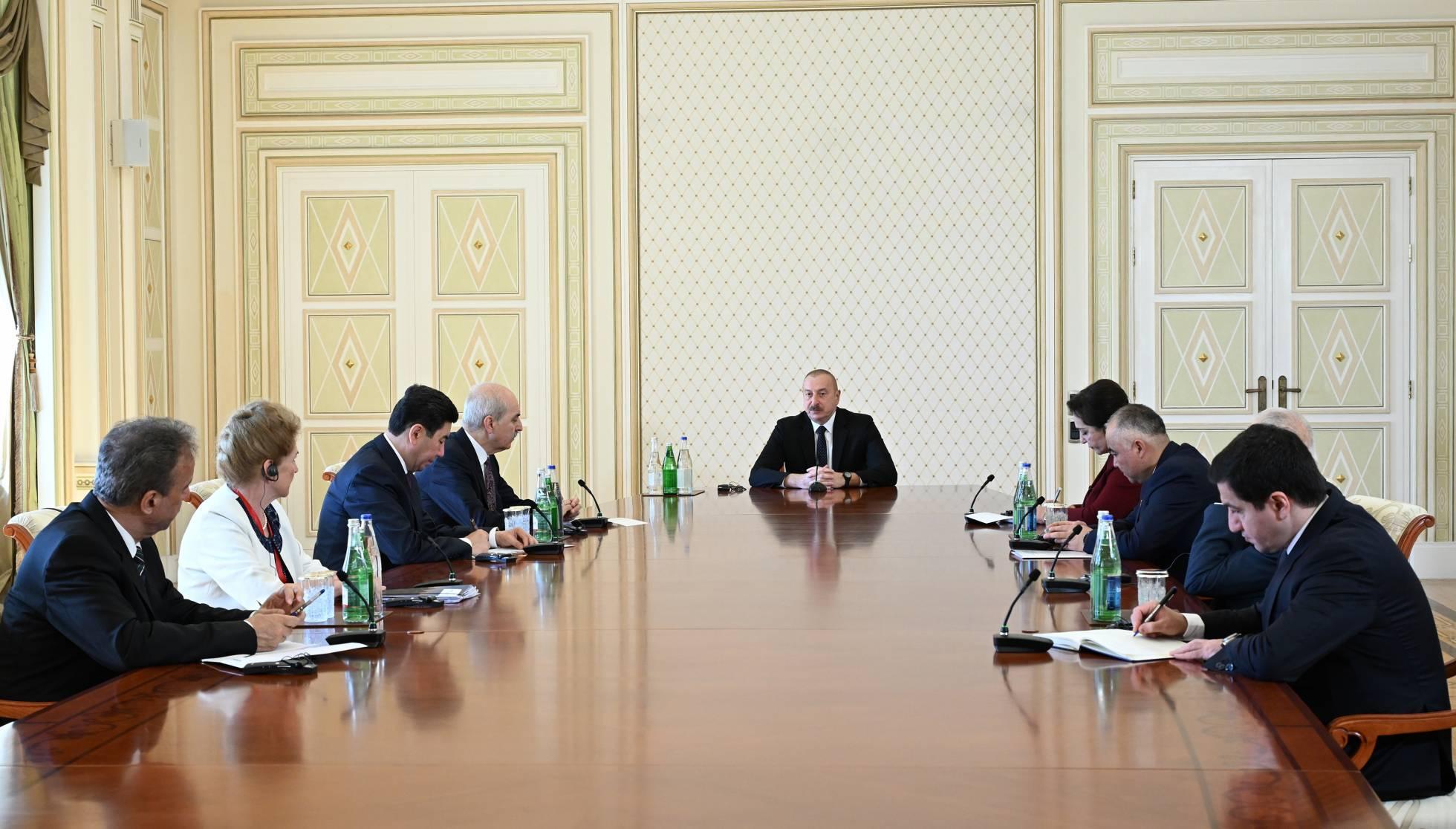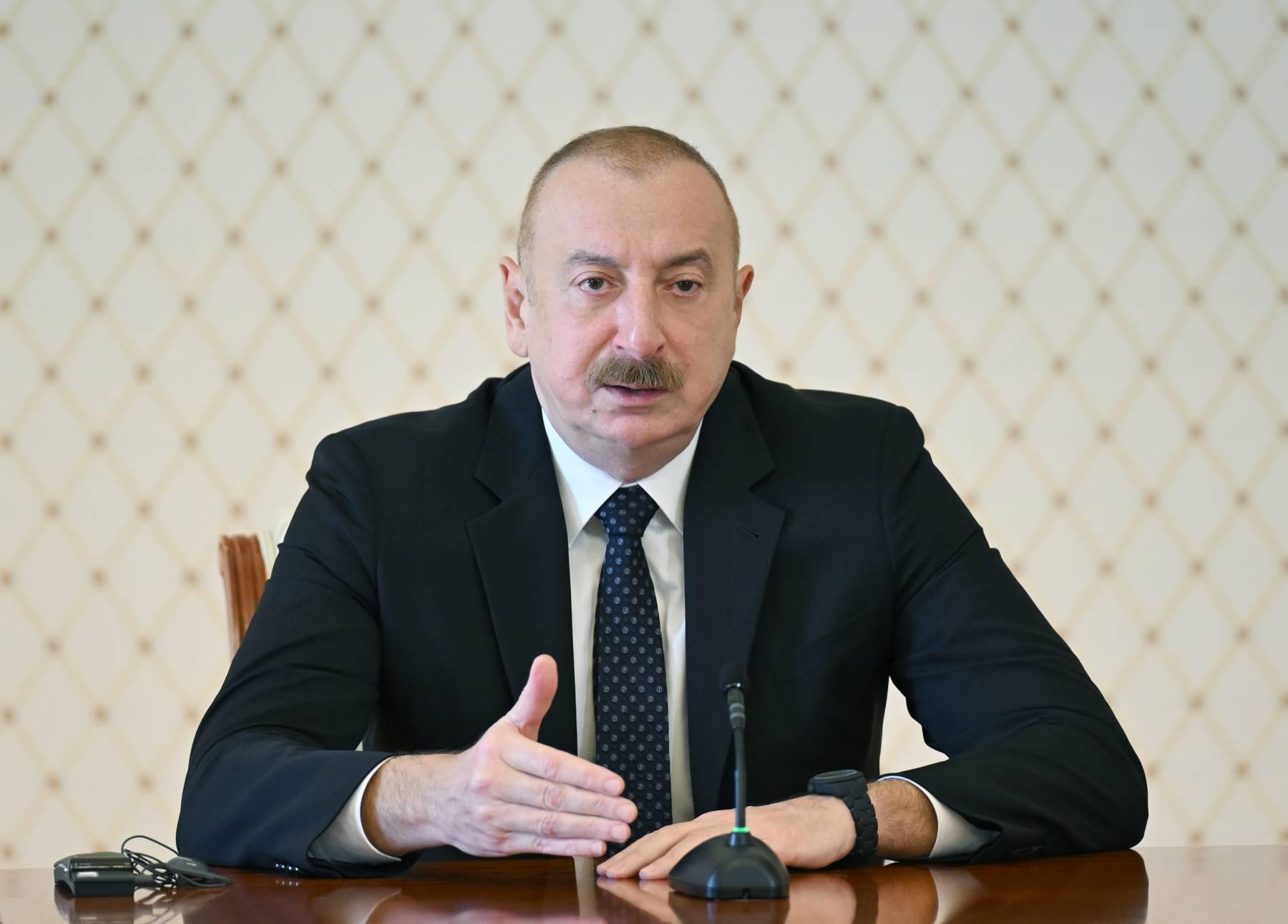TURKPA's contribution to Turkic economic, political integration Shaping the future
In a relatively short period of time, Turkic states have managed to take their rightful place in the international arena, launching sustainable and viable integration mechanisms in the economic sphere, formulating the contours of the Turkic world as a new geopolitical reality. Today, Azerbaijan, Central Asian (CA) states and Türkiye are expanding trade and cargo transportation along the Middle Corridor and implementing joint business projects within the Organization of Turkic States (OTS).
The efforts of the Parliamentary Assembly of Turkic Speaking States (TURKPA) are also contributing to this integration. The 13th plenary session of TURKPA was held in Baku this week, which featured discussions on the prospects for political and business cooperation, and unanimously adopted the Baku Declaration.
"TURKPA meetings are usually a manifestation of the unity of the Turkic world. I am sure that the next plenary session of TURKPA will yield good results, and I am sure that the Baku meeting will be no exception either. Our countries are making great effort towards the unification of the Turkic world,” Azerbaijani President Ilham Aliyev said as he received TURKPA delegation in Baku.
The head of state reminded that the Organization of Turkic States (OTS) countries are very actively cooperating in increasing the volume of cargo transportation along the Middle Corridor and improving the efficiency of this route. At the same time, there is a strong demand for this potential in the world today. The states of the Caspian region have stepped up cooperation in the field of transport and logistics in various formats, including within the OTS and TURKPA structures. Given the breakdown of traditional logistics in the Eurasian space, the Turkic world today offers alternative transit routes from China to Europe.
Located on the eastern coast of the Caspian Sea, Kazakhstan, Turkmenistan and landlocked Uzbekistan and Kyrgyzstan, along with Azerbaijan and Türkiye, are deepening cooperation within the three main vectors of the Middle Corridor - Europe-Caucasus-Asia (TRACECA), the Trans-Caspian International Transport Route (TITR), and the LapisLazuli route. The partner countries agree on plans to optimize regional logistics, modernize and introduce digital technologies in transport infrastructure, and unify transportation tariffs and customs legislation.
The efforts of the OTS countries in partnership with China are aimed at multiplying cargo traffic through the TITR, and in this regard, the port and railway infrastructure of the Caspian states is being modernized.

Addressing the TURKPA delegation, President Ilham Aliyev also noted that Turkic countries cooperate on topical climate issues. These issues are among primary objectives on Azerbaijan's agenda today, which will host the UN COP29 conference this November.
During the 6th World Forum on Intercultural Dialogue held a month ago in Baku, OTS Secretary General Kubanychbek Omuraliev noted that climate change, “green” future and other environmental topics remain top priorities on the agenda of Turkic states and in the organization's strategy for 2020-2026. A lot of attention was paid to environmental protection, protection and economical use of water resources. The OTS Secretary General also emphasized the importance of holding the 29th session of the Conference of the Parties to the UN Framework Convention on Climate Change in Baku. "COP29 is a key international forum on climate change and the OTS member countries will present their climate strategies here. We expect this event to become an effective and important platform in many respects."
It is noteworthy that in the recent period Turkic countries have started to expand cooperation in the renewable energy sources (RES) sector. As an example, the “Memorandum of Cooperation on the Integration of Energy Systems” signed on May 1, 2024 in Tashkent between Azerbaijan, Kazakhstan and Uzbekistan. This document envisages to stimulate the implementation of joint goals towards the production of “green” energy and its export to Europe through the territory of Azerbaijan, as well as the integration of energy systems and the organization of efficient use of resources in the RES segment.
This is, in particular, the Black Sea Energy project, which envisages the laying of a power cable under the Black Sea with a capacity of 1,000 MW and a length of 1,195 km. The organizers of this endeavor - Azerbaijan, Georgia, Romania, Hungary and Bulgaria - expect to complete a feasibility study of the project by the end of 2024. “Kazakhstan and Uzbekistan may also join the Black Sea Energy corridor, in connection with which detailed negotiations are currently underway,” Azerbaijani Deputy Energy Minister Kamal Abbasov said during panel discussions at the Baku Energy Week.
Logistics and transportation, energy, including its “green” component, are by no means the only areas that the Caspian littoral states and Türkiye are consistently developing. The trade and economic potential of the Turkic region is much more impressive, taking into account a number of objective facts: the total GDP of the OTS countries exceeds $1.5 trillion, and the population which has exceeded 160 million people, is growing very dynamically. Due to the predominance of young people, the availability of a relatively inexpensive and qualified labor market and a favorable business and investment climate, the Turkic countries are attractive for the localization of production clusters.
At the same time, Türkiye, Azerbaijan, Central Asian countries, as well as Hungary, which actively cooperates with the OTS, are building new mechanisms to increase non-oil trade. In 2023, the trade turnover between the OTS countries amounted to $42.3 billion and increased by 27.3 per cent in value terms compared to the previous year, while the total trade turnover of Turkic countries with the world amounted to about $1.3 trillion. It is important that Azerbaijan accounts for almost a quarter of the total trade turnover between the OTS member countries, and last year its volume amounted to about $9 billion. Today, the Turkic countries have set a goal to further increase the volume of trade and investment cooperation, for which they have strengthened the coordination process by holding systematic meetings within the OTS and TURKPA structures.
“On my initiative, an informal summit of the Organization of Turkic States will be held in Shusha in a month’s time. I thought that holding a summit once a year would not be enough because there is a need for prompt and continuous contacts. In addition, each summit becomes another next step in the direction of strengthening our unity. I am quite pleased and grateful to my colleagues for supporting this initiative,” President Ilham Aliyev said, as he received the TURKPA delegation.

The president emphasized that holding of the summit in Shusha carries a great symbolic meaning. Shusha has been free from occupation for almost four years now. Construction and restoration work is in full swing there.
"We are feeling this brotherly support of Turkic states. I should also say that a school and an art center have already started operating in the liberated lands on the initiative and with the financial support of the brotherly countries. They were built by Uzbekistan and Kazakhstan. We recently laid the foundation of a school – together with the President of Kyrgyzstan in Aghdam district. A school will be built with the financial support of Hungary in a settlement in Jabrayil district,” President Ilham Aliyev reminded.
The President of Azerbaijan also emphasized that the ongoing large-scale reconstruction works will turn the Karabakh and East Zangazur economic regions into one of the most developed regions across the world. Turkish companies are actively involved in these large-scale endeavors as contractors and investors, and in the future, all the OTS member states and other partners of Azerbaijan are invited to participate in agro-industrial, tourism and other investment projects in the Garabagh region.
The Parliamentary Assembly of Turkic Speaking States provides considerable support in accelerating the processes of Turkic business cooperation. Established on November 21, 2008 on the margins of a conference of the speakers of Parliaments of Azerbaijan, Türkiye, Kazakhstan and Kyrgyzstan held in Istanbul, this structure is aimed at forming mechanisms of inter-parliamentary relations between Turkic countries, convergence of political views, exchange of information, promotion of Turkic culture and language, expansion of economic ties and implementation of joint infrastructure and business projects.
TURKPA has four commissions dealing with culture, education, economic cooperation, legislation and international relations. The coherence and effectiveness of cooperation within the Parliamentary Assembly was once again confirmed by the outcome of the 13th Plenary Session, during which the Baku Declaration was unanimously adopted.








